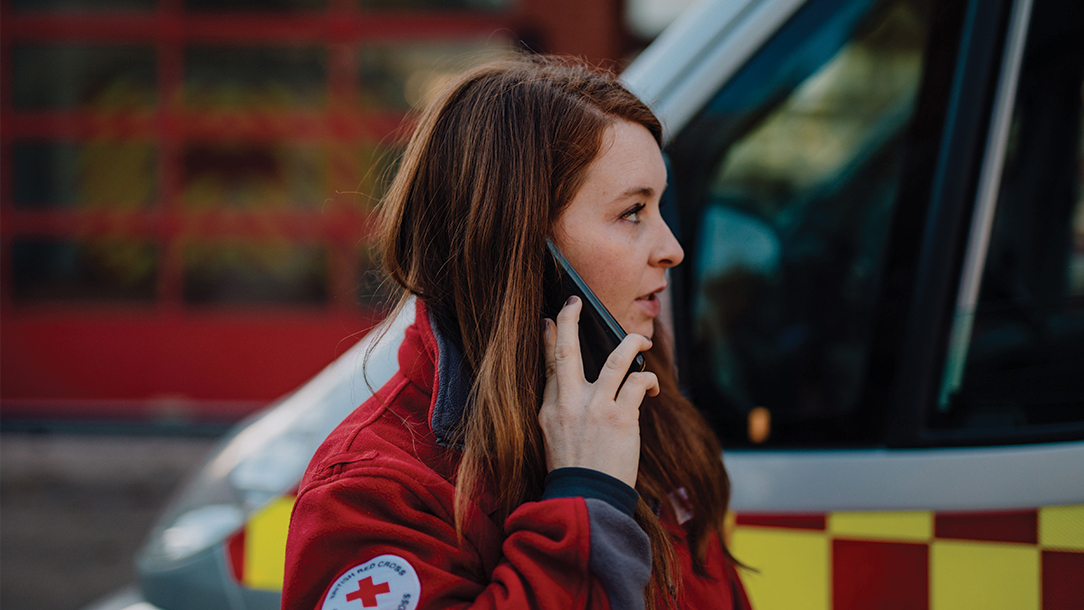Eight things you didn’t know the British Red Cross does in health and social care
Last updated 1 December 2022
From life-saving skills to A&E support, here are eight ways we’re helping people through the health and social care system.
Did you know that health and social care is a huge area of work for us? It forms so much of what we do in the UK – and we’ve been working in this space for over 70 years, before the NHS was even established.
From life-saving skills to A&E support, here are eight ways we’re helping people through the health and social care system. Read on to find out more on the ways in which we help those in need.

©Peter Flude/British Red Cross
1. Supporting A&E departments
Our volunteers work in the A&E departments of over 20 hospitals in the UK, giving practical and emotional support to those using the department. As well as providing a sympathetic ear for patients, this eases up time for hospital staff to focus on what they do best.
2. Emergency transport
We have an extensive fleet of ambulances and crew who are regularly called upon to support NHS ambulance services. As well as in emergencies, we use our vehicles to help people home from hospital or to attend important appointments. In 2018, we provided 50,800 patient journeys.
3. NHS collaboration
During the winter of 2018/2019, we gave extra support to 39 hospitals. This year (2019/2020), we're working with more - around 45. Our support and care allows people to recuperate at home if they are well enough. This frees up beds and relieves the pressure on health staff.
4. We help people experiencing loneliness
Loneliness is an epidemic in the UK. We’ve supported thousands of people across the UK who are experiencing loneliness or social isolation .Our local services connect people of all ages to build confidence and rediscover or find new interests, while meeting new friends.
5. First Aid teaching
Simple actions save lives. In 2018, we helped 328,200 people learn simple life-saving first aid skills. Our first aid resources and training courses provide people with the skills to help save a life. We campaigned together with the British Heart Foundation and St John’s Ambulance for first aid to be taught in all primary schools.
From 2020 onwards, all state-funded schools in England will be required to teach first aid as part of health education. We also want first aid to become a compulsory part of the school curriculum in Wales, Northern Ireland, and Scotland, too.
6. We support people at home
Thanks to our thousands of volunteers, we supported 95,200 people in 2018 with short-term help in their home, helping them regain their independence. This could include picking up a prescription, helping them with their shopping, walking their dog or making their living space more suitable. As people recover, our volunteers encourage people to regain the confidence to do these things again themselves.
7. We help people get home from hospital
Not everyone has family close by or friends that they can call on to help them get home after a hospital stay. As well as helping people get home safely, we check on their wellbeing once they’ve settled in. We make sure they have food in the cupboard, milk in the fridge and anything else they may need, as well as making sure they have someone to check on them for longer, if they need it.
8. We hire out wheelchairs
In 2018, we loaned or hired out 84,900 wheelchair and mobility aids to those in need. In fact, we’re the largest provider of short-term - less than six months - wheelchair loans in the UK. Working in partnership with the NHS, we are often the only option for people who would otherwise be immobile for months.
We don't think people should need to rely on charities when they need a wheelchair so we're also calling on governments to provide wheelchairs to those who need them.
A helping hand
We’ve been there for people in vulnerable situations across the country for 150 years, no matter who or where they are. Click below to make sure we’ll always be there for people.
Donate